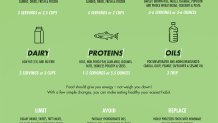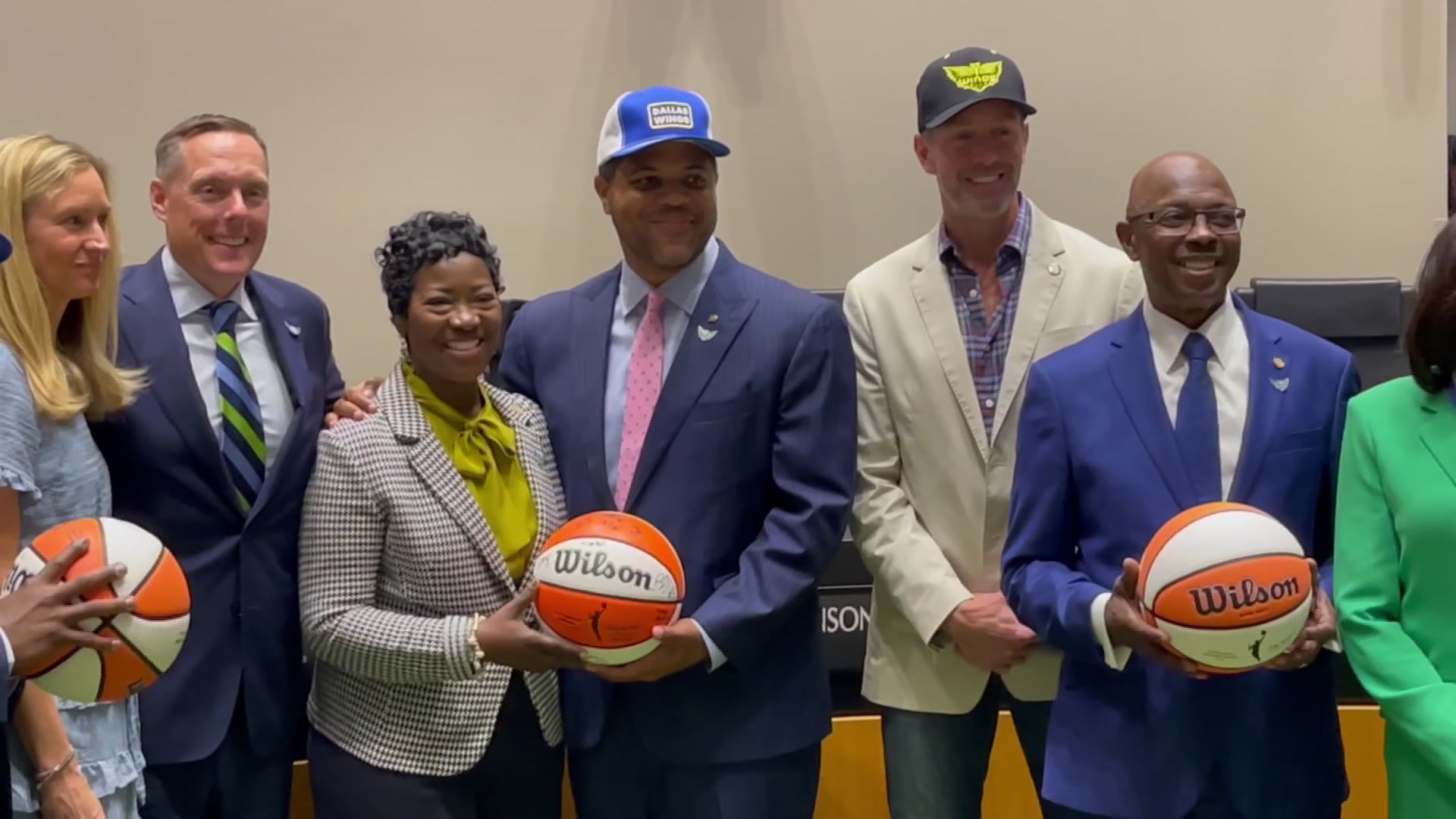It's the last Monday of February, which means NBC 5’s Heart Month Mondays series comes to an end.
Throughout the month, we have shared stories to help you and your family live healthier lives – from the importance of CPR training to the need for AEDs in public spaces and even what local schools are doing to educate the youth on life-saving skills.
The reason for American Heart Month, spearheaded by the American Heart Association, is clear and urgent. Heart disease is the leading cause of death in the United States. Every 34 seconds, one person dies from it according to the Centers for Disease Control and Prevention.
Here in North Texas, the AHA is working to fight heart disease one clinic at a time.
Get DFW local news, weather forecasts and entertainment stories to your inbox. Sign up for NBC DFW newsletters.
Thought its PREVENT Heart Disease Now grant, the organization has funneled that grant money into clinics across the area, including the Woven Health Clinic, with the help of Metrocrest Hospital Authority.
The grant allows businesses and other corporate entities to sponsor and clinic and donate funds for various needs of that clinic.
For Woven Health Clinic -- which is a nonprofit community clinic in Farmers Branch and Carrollton -- the focus is on uninsured and underinsured patients.
Local
The latest news from around North Texas.
"It was kind of hard because when my husband lost a job, I lost insurance, I lost the insulin. So I couldn't give myself insulin,” she said. "The clinic is so good. They talk to me about everything."
On top of that, Woven takes a unique approach to treating and even reversing heart disease and hypertension in its patients. Doctors said the pandemic brought about habits and experiences that caused those conditions to worsen.
"How's my stress level? What am I eating? Am I exercising or not? So I think those things pile up and at some point it does manifest,” said Dr. Namrata Babaria, Woven Health Clinic chief physician.
The program focuses on diabetes and nutrition, healthcare access, health screenings, and prevention.
Grant money from the AHA helped provide 2,000 free take home blood pressure cuffs so they could teach patients how to track their heart stats every day.
Patients also have access to in-house nutritionist and behavioral specialist, plus CPR training, workout classes, and cooking classes.
Since Woven Health launched this specific program in 2016, they've treated over 6,000 unique patients for heart disease related conditions as part of the PREVENT Heart Disease Now AHA grant.
The results are impressive, according to the AHA. Woven Health consistently has outcomes in the Top 5 percent nationally for controlling hypertension based on Medicare Benchmarks.
The implementation of the program has contributed to 37% of patients with STAGE 1 hypertension reducing their blood pressure, and after participating in the Prevent Disease Now program, 88% of patients diagnosed with Stage 2 hypertension moved to Stage 1.
“The blood pressure monitor cuffs given to patients have empowered them to control their blood pressure, get educated about their blood pressure, and learn to manage and take charge of their health,” said Dr. Babaria. “Having a blood pressure kiosk in the clinic has also contributed to our success in improving the health of our community. To help with this program, we have onsite nutritionists because diet is a very, very important part of our health overall.”
A critical component that helped patients with their conditions is diet. Experts say what you eat can make or break your health.
TEACHING, NOT TELLING
NBC 5 sat down with registered dietitian nutritionist Dilhari Gunathilaka at Woven Clinic, who isn't just telling patients to eat better – she’s teaching them.
When a patient gets diagnosed with diabetes, hypertension, or high cholesterol and triglycerides, they come to her.
She said most of the time, they're people who don't eat vegetables or they only eat it once or twice a week.
“But you should be eating them up to two times per day,” she said.
Common foods her diabetic and hypertension patients eat on a regular basis involve fast food for the sake of convenience.
“Fried stuff like fried chicken, donuts, cakes and foods heavy on the margarine,” she said, which in moderation can be acceptable, but not so much for those who eat it regularly and already struggle with health issues.
She said years of eating trans fats, saturated fats and high cholesterol can clogging people’s arteries.
"My patients, some of them drink soda like one or two times a day – sometimes five or six sodas a day. So getting them down to even like two sodas a day is very, very hard. So we focus mostly on goal setting and small changes,” she said. “They do really well when I tell them to cut back slowly.”
To help with that, a behavioral specialist is on site to work with patients on the mental aspect of eating.
“We work together as a team to get their numbers down,” said Gunathilaka.
The list of heart healthy foods she says patients should try to eat include fruits, vegetables, oatmeal, salmon and nuts, among many other things.
Click here for a full list to shop with while at the grocery store.

To reverse the path of destruction her patients are taking on their hearts, Gunathilaka sits down with patients and walks them through planning meals, building meal plans, and physically showing them how to portion foods with props provided as part of the grant by the AHA. The clinic even hosts cooking classes.
Once patients make small changes to their diet, limit sugar and sodium, and add more fruits, vegetables and heart-healthy proteins, the Woven clinic has seen a decrease in patients’ blood pressure by 5 to 10%.
“That is what is so exciting. It's not that you're going into an appointment, you get diagnosed with hypertension and then you're told good luck, you need to change your diet,” said Jenny Eyer, Vice President of Health Strategies for American Heart Association. “When you walk into Woven and are diagnosed with hypertension, you're going to leave with a blood pressure cuff. You're going to leave with your information on how to adjust your lifestyle, make those lifestyle changes and then you get to meet with the nutritionist with nutrition ingrained into the entire clinic operation.”
That’s why this teaching approach to improving heart health is something the American Heart Association wants to replicate at more clinics across North Texas and beyond.
"We love to see clinics like Woven because they are there to address the needs in the community,” said Eyer. “It is unique and it's really exciting because you're not leaving with many more questions – you're leaving with answers. And you've got someone to come back to if you have more questions.”




